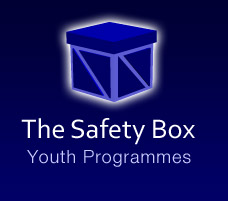Personal, Social and Health Education (PSHE) & ECM
In our sessions pupils learn about the importance of acting responsibly, empathising with others and understanding the consequences of their actions. This is not done through lecturing or preaching, but by engaging in classroom activities, discussion and sharing experiences that are relevant to real life.
The Safety Box teaches economic wellbeing and we aim to equip pupils with the knowledge, skills and attributes that they can use both inside and outside school, we present to them the nature of the world of work, using entrepreneurs to speak about their particular businesses, we show them how they can start a business and inspire them to achieve.
Safety
Pupils should be able to keep themselves safe in the home, at school, while travelling, at work, in play, in sport and in leisure. Safety education helps them to recognise the potential risks.
The Safety Box school and youth programs compliment the National Curriculum standards for personal, social and health education (PSHE), Enrichment and Citizenship and follow the Every Child Matters Framework which focus on these 5 key outcomes:
Be healthy
Stay safe
Enjoy and achieve
Make a positive contribution
Achieve economic well-being
The aim is to improve outcomes for all children and young people in these five areas and to narrow the gap in outcomes between those who do well and those who do not.
We aim to improve the health and well-being of children and young adults up to age 19. Our aim is to work with schools and colleges to raise students’ attainment levels and exam results. At the same time we help with behavioural and bullying related issues.
The courses focus on teaching pupils the fundamentals of personal safety while building self esteem and reinforcing positive values such as respect for others. Special attention is given in cases where behavioural problems are an issue.
PSHE Key Stage 2
Developing confidence and responsibility and making the most of their abilities
to recognise their worth as individuals by identifying positive things about themselves and their achievements, seeing their mistakes, making amends and setting personal goals
Preparing to play an active role as citizens
to understand why and how rules and laws are made and enforced, why different rules are needed in different situations.
to realise the consequences of anti-social and aggressive behaviours, such as bullying and racism, on individuals
to resolve differences by looking at alternatives, making decisions and explaining choices
Developing good relationships and respecting the differences between people
to understand that their actions affect themselves and others, to care about other people's feelings and to try to see things from their points of view
to realise the nature and consequences of racism, teasing, bullying and aggressive behaviours, and how to respond to them and ask for help
to recognise and challenge stereotypes
to understand that differences and similarities between people arise from a number of factors, including cultural, ethnic, racial and religious diversity, gender and disability
PSHE Key Stage 1
Developing confidence and responsibility and making the most of their abilities
to recognise what they like and dislike, what is fair and unfair, and what is right and wrong
to share their opinions on things that matter to them and explain their views
to recognise, name and deal with their feelings in a positive way
Preparing to play an active role as citizens
to recognise choices they can make, and recognise the difference between right and wrong
to agree and follow rules for their group and classroom, and understand how rules help them
to realise that people and other living things have needs, and that they have responsibilities to meet them
Developing good relationships and respecting the differences between people
to recognise how their behaviour affects other people
to listen to other people, and play and work cooperatively
to identify and respect the differences and similarities between people
that there are different types of teasing and bullying, that bullying is wrong, and how to get help to deal with bullying.
PSHE Key Stage 4 & 5
Developing confidence and responsibility and making the most of their abilities
to have a sense of their own identity and present themselves confidently in a range of situations
to be aware of how others see them, manage praise and criticism, and success and failure in a positive way and learn from the experience
Developing a healthy, safer lifestyle
to use assertiveness skills to resist unhelpful pressure
Developing good relationships and respecting the differences between people
to challenge offending behaviour, prejudice, bullying, racism and discrimination assertively and take the initiative in giving and receiving support
to work cooperatively with a range of people who are different from themselves
to deal with changing relationships in a positive way, showing goodwill to others and using strategies to resolve disagreements peacefully
about the diversity of different ethnic groups and the power of prejudice
PSHE Key Stage 3
Developing confidence and responsibility and making the most of their abilities
to recognise their worth as individuals by identifying positive things about themselves and their achievements, seeing their mistakes, making amends and setting personal goals
Developing good relationships and respecting the differences between people
about the effects of all types of stereotyping, prejudice, bullying, racism and discrimination and how to challenge them assertively
how to empathise with people different from themselves
about the nature of friendship and how to make and keep friends
to recognise that goodwill is essential to positive and constructive relationships
to negotiate within relationships, recognising that actions have consequences, and when and how to make compromises





